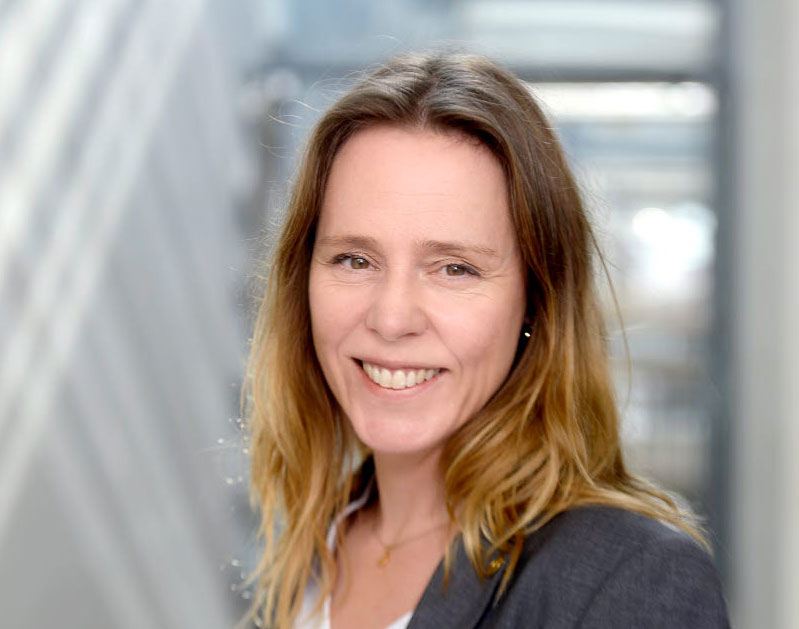Professor's portrait: Anette Hallin

Anette Hallin, Professor of Business Administration is one of the professors to be installed at the Academic Ceremony on 7 October 2022.
Anette Hallin, Professor of Business Administration. School of Business Society and Engineering , Division of Organization and Management.
Please tell us briefly about your academic career – what decisions have brought you to where you are today?
Maybe I was always meant to be an academic — even if I didn't know this as a child. How could I? No one in my family had gone to university before. But I always liked school; I liked to read and to learn things. When I was in my last year of upper secondary school and it was time to make a decision about my future, I decided that I would continue with my studies at what was called "university". But what was I going to study? I was most keen on history. And general literary studies. But what could you work with thereafter? For me, there was only one answer. To be a teacher!
Five years later, I had completed a Master's degree in Practical Teaching and Learning and became a subject teacher in Swedish, History and English. Another seven years later, I had taught these subjects, at KomVux (adult education at upper-secondary level) and in upper secondary school, and I was completely fed-up. Is this what my life would look like until I retired? I decided to make some changes.
At first I worked in the private sector for a few years in sales and as a consultant. Then, at a party, I met an Associate Professor from the Royal Institute of Technology (KTH) who told me that he had received funding to conduct research on cities and that he was going to hire a doctoral student. I thought it sounded exciting and decided to apply. And to my great surprise, I was accepted. I, who was neither an engineer nor an economist, but a humanist, had now been admitted to the doctoral programme in Industrial Engineering! It felt very strange but at the same time incredibly exciting. And it was amazing! I got paid to study! But at the same time, I was surprised at how old-fashioned academia was, in many ways. While I was writing my doctoral thesis, I thought about what I would do when I finished. Maybe open a hot dog stand specialising in tasty sausages?
But first I got the chance to take my family to California to spend six months there directly after defending my doctoral thesis at Scancor, Stanford University. While I was there, I found out that I had received the "Wallander scholarship"; which is a 3-year full-time scholarship that the professors at INDEK, KTH had nominated me for. The scholarship is awarded every year to ”young and promising researchers.” I didn't feel very young (I had just turned 40) but I needed the money. So those hot dog stand plans didn’t materialise and I decided to stay in academia. As a Wallander scholarship holder, I had the privilege of visiting departments at various higher education institutions in Sweden, including those in business administration, and when the money began to run out and it was time for me to apply for a job, MDH announced that they were looking for a Senior Lecturer in Business Administration.
So I applied and started at MDH in 2013. In 2015, I was appointed Associate Professor and in 2019 Professor. At the same time, I reduced my hours at MDH because I had just become a Professor at Åbo Akademi University, a Swedish-speaking university in Finland. "And the rest is history," as they say.
Which research domains are particularly important for you?
Curiosity is my main driving force in life and as an academic I have a fantastic opportunity to satisfy my curiosity – every day. If you look at my publication list, you'll see that I've been curious about many things. For example, what happens in companies when we use technology and how people and technology together create organisation; how the idea of "sustainability" is translated into daily practice; what the research practice really entails, and much more. I still have a teacher identity – I have written several textbooks and like to think about different ways to organise teaching so that students can learn.
What is the driving force in your research?
First and foremost, I enjoy collaborating with others and I love the fact that I now, even more in my role as Professor, can support others in their development as a researcher. This may sound a little self-righteous, but it's true. I love to see doctoral students and junior researchers develop and spend a lot of time on various activities to support this.
How do you feel about becoming a Professor given that MDU has recently become an official University?
I think it's fantastic that MDH has become MDU. Of course it’s great that we will get more resources, but the most fantastic thing is that the process has been driven by and with strong support from several organisations in the Mälardalen region that view us as "THEIR" University. That's the way it should be, because it shows that they think it's important that we exist. I've seen many higher education institutions and know that this is unique; very few of them have such strong support and work as broadly on subjects with collaboration as MDU. I am incredibly proud of this. Because it is vital that a higher education institution has a solid base where it operates. It provides us with the opportunity to conduct relevant and current research in a way that other higher education institutions can’t really do.
